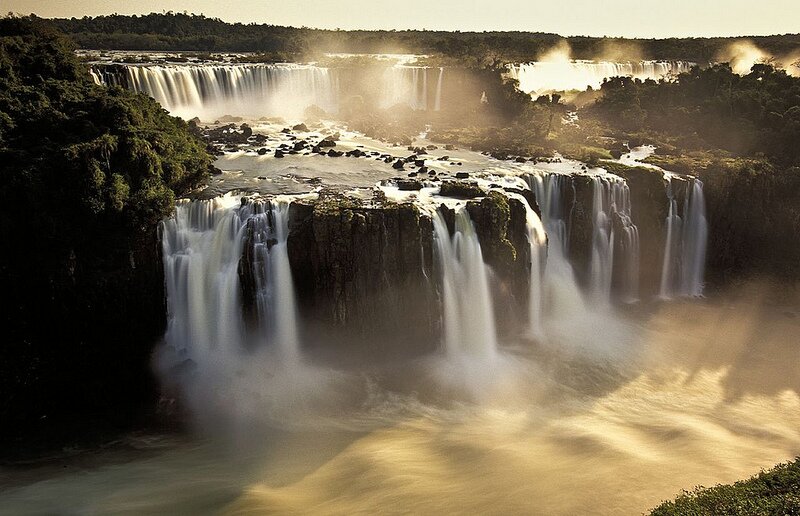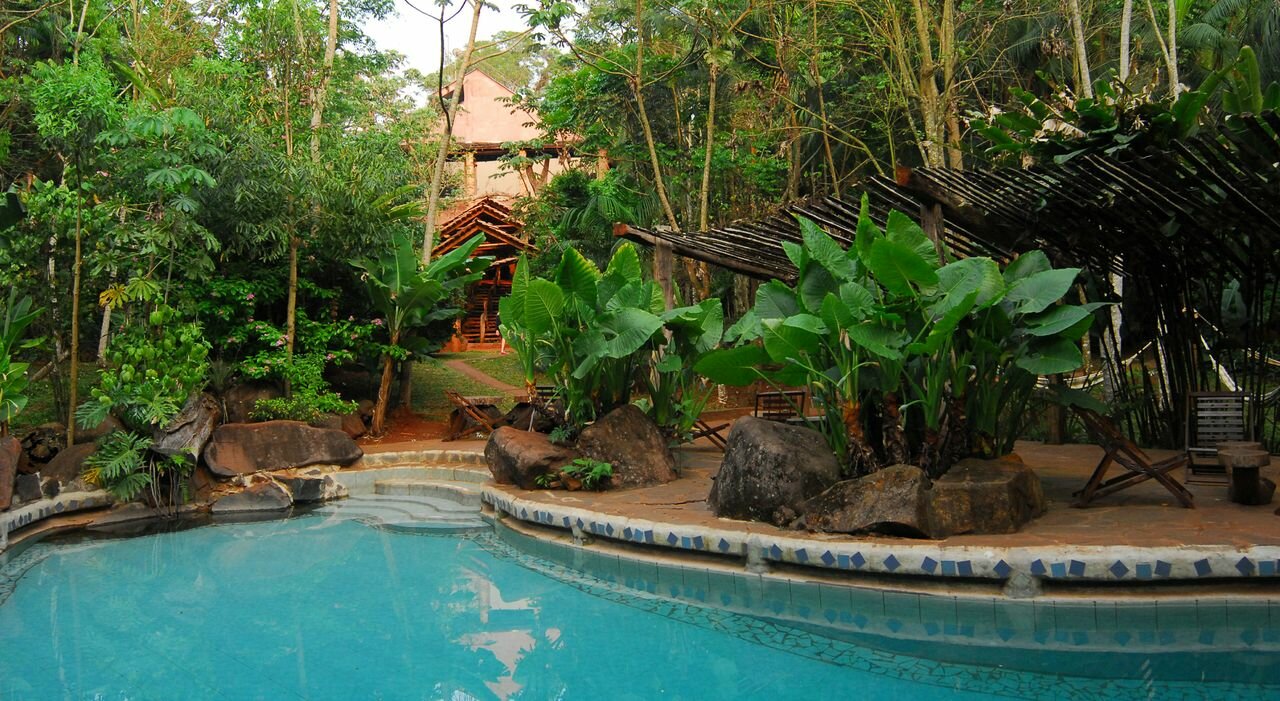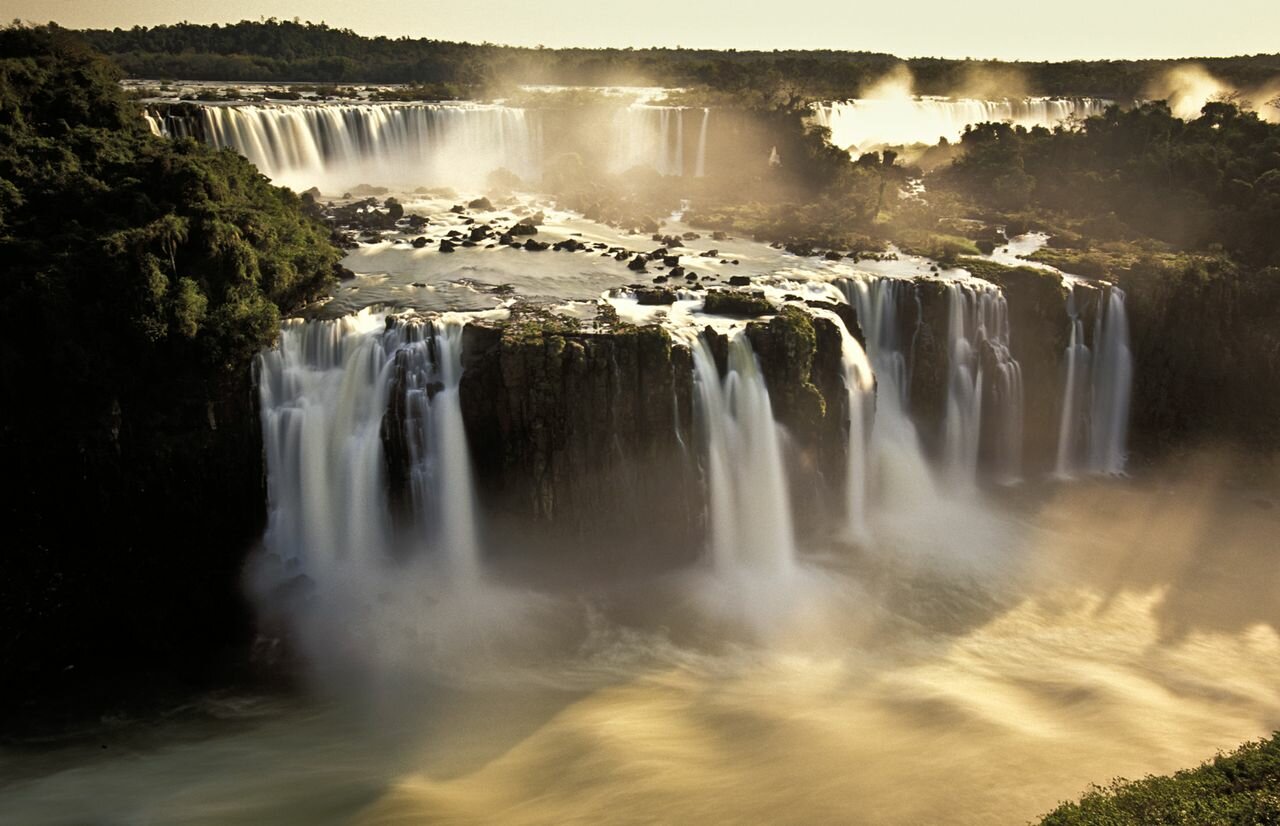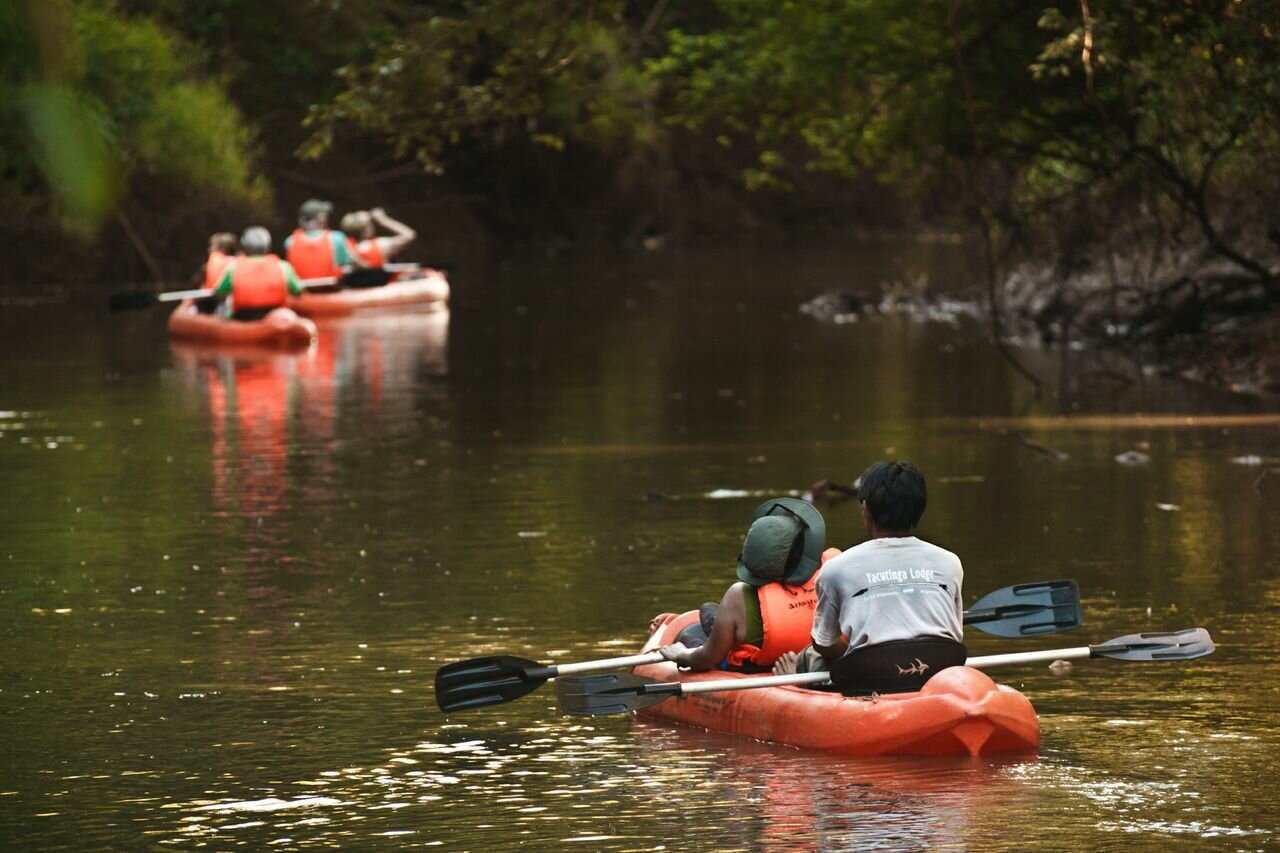Vea esta publicación en español.

The magnificent Iguazu Falls, located about where Paraguay, Brazil, and Argentina join borders, are ranked as the second largest waterfalls in the world. This UNESCO World Natural Heritage Site is a collection of 275 falls that extend over 1.7 miles in total, reaching anywhere from 197 to 269 feet in height. The Iguazu Falls were discovered in 1542 by Spanish commander Álvar Núñez Cabeza de Vaca. They were created by a geological fault about 200,000 years ago, but ancient myths have a different explanation:
It is said that many years ago, there was a big and monstrous serpent god who lived in the Iguazú River, and its name was Boi. Once a year, the Guaraní people had to sacrifice a beautiful maid as an offer to Boi by throwing her to the river. All of the tribes, including the ones that lived far away, were invited for this ceremony. One year, a young warrior named Tarobá found out that the beautiful maid Naipí was chosen for the sacrifice. He rebelled to elderly members of the tribe, trying in vain to convince them not to offer her.
To save his beloved Naipí, he decided to escape with her on the night before the sacrifice. They stole a canoe and fled down the river. But Boi caught them and became furious. He drove his serpent body into the ground, which split the river and formed the falls, engulfing Naipí and Tarobá in their canoe.
Tarobá became the trees on the cliffs above the falls, and the beautiful Naipí was transformed into a rock. Their punishment is to always see each other but never be together again.
Boi retreated into a cave, where he watches Naipí and Tarobá be forever separated. However, on sunny days, a rainbow surpasses Boi's power and joins the trees to the rock, symbolizing Naipí and Tarobá's eternal love.
Photo courtesy of Yacutinga Lodge.





